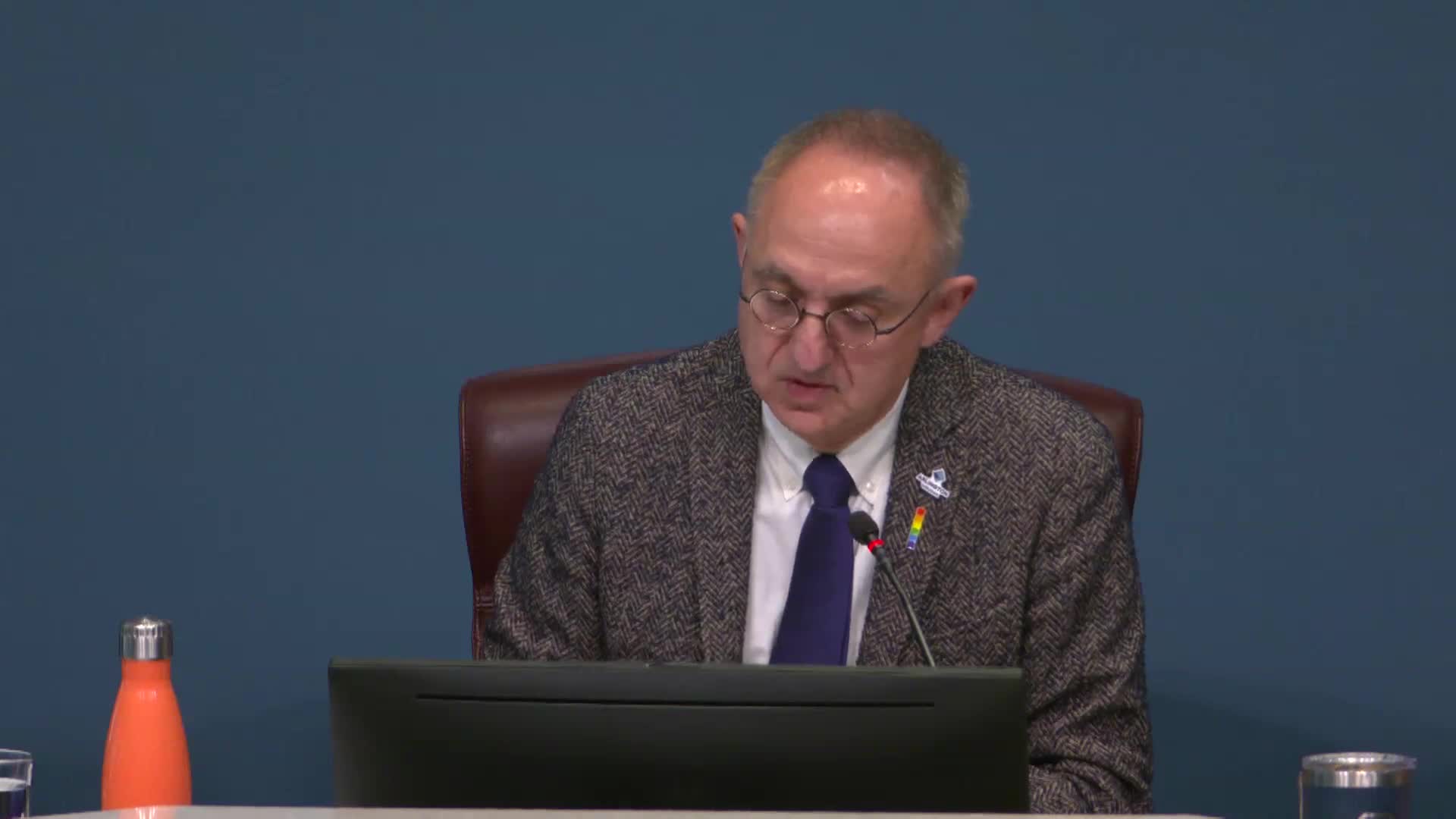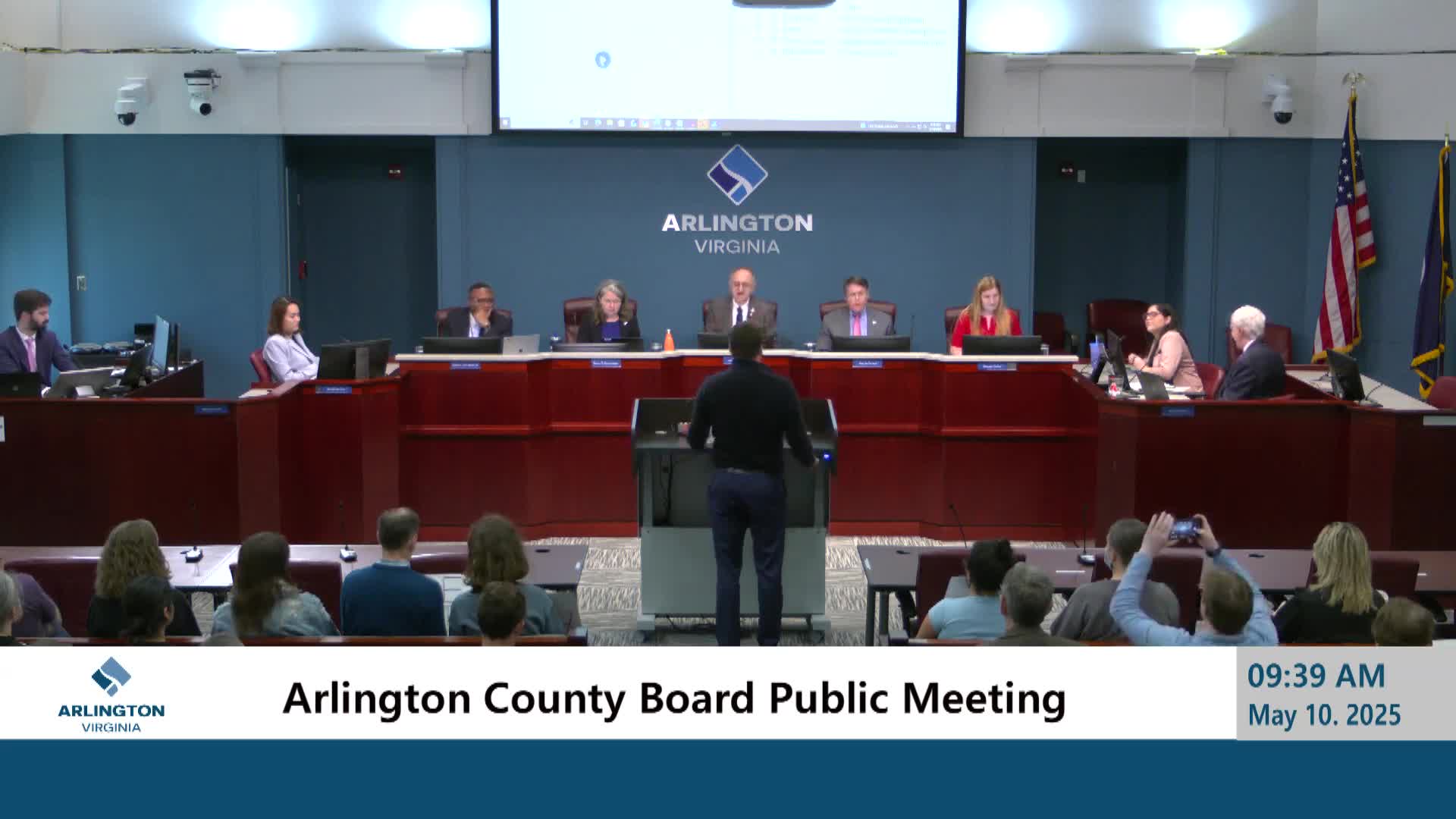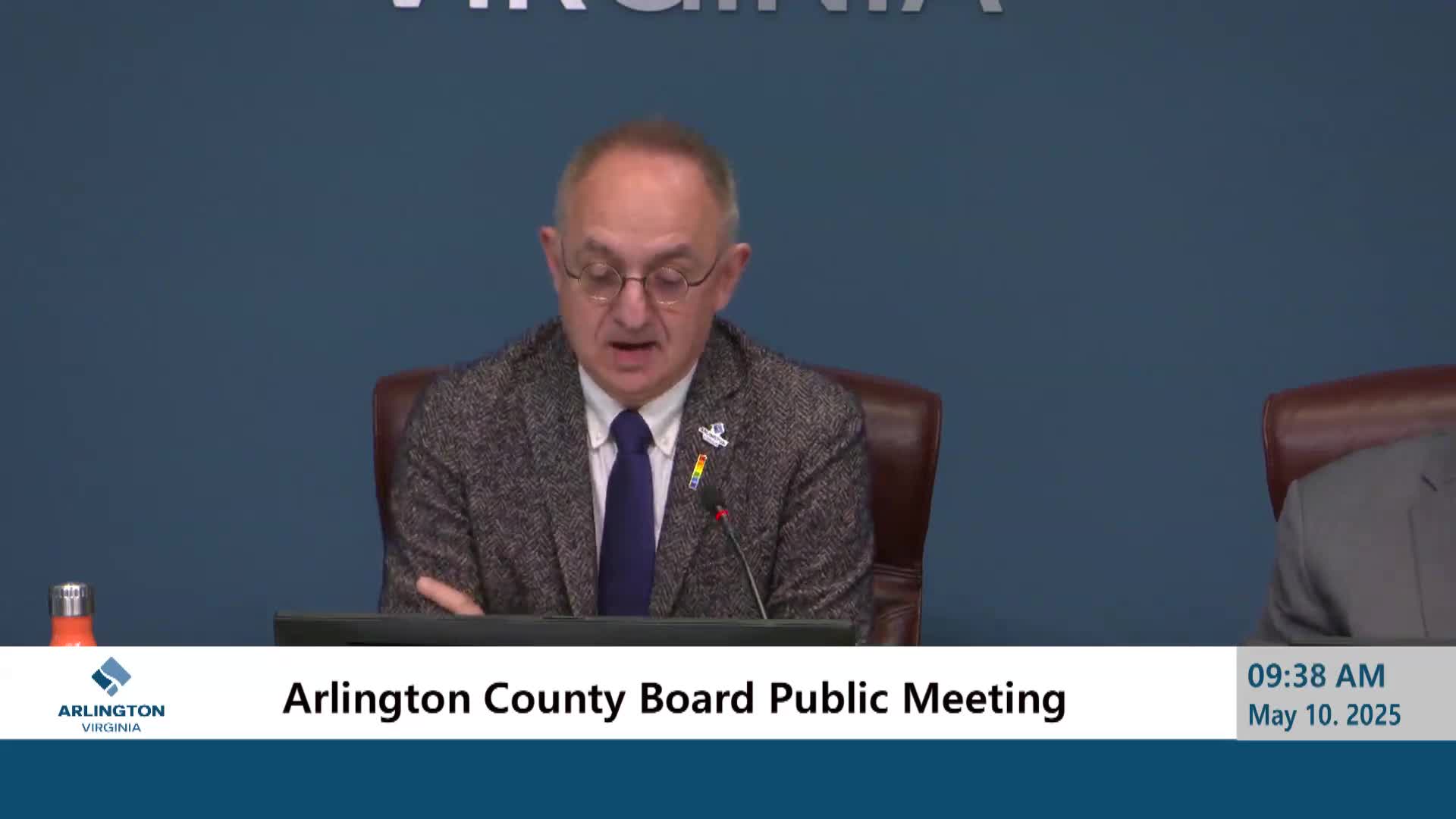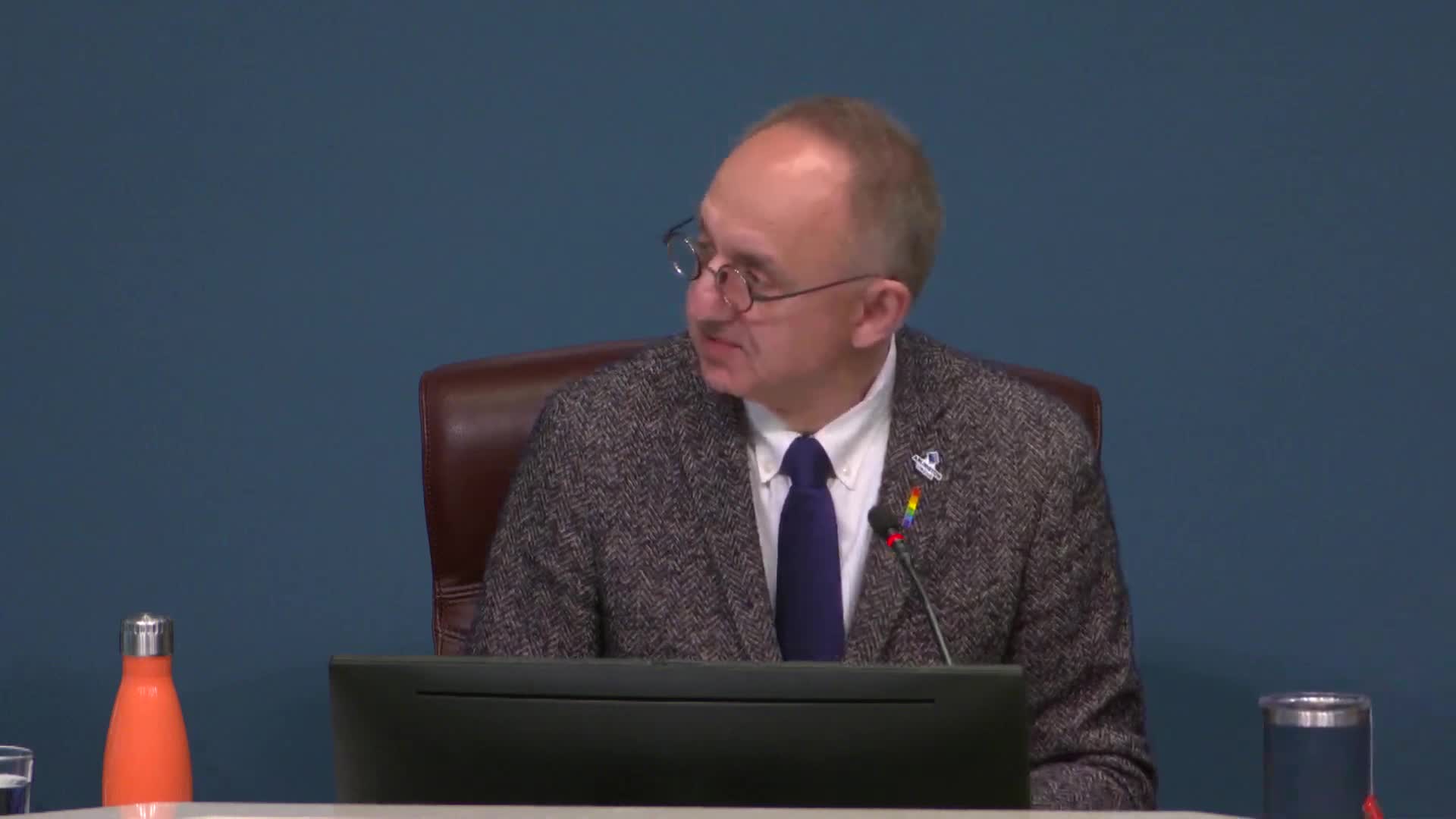Article not found
This article is no longer available. But don't worry—we've gathered other articles that discuss the same topic.

Votes at a glance: May 10 Arlington County Board — consent agenda and Clarendon Square

Aspire after‑school program urges county help after AmeriCorps funding cut; board pledges short‑term support

Arlington board schedules vote next Tuesday to remove Section 7 of trust policy after months of public pressure

